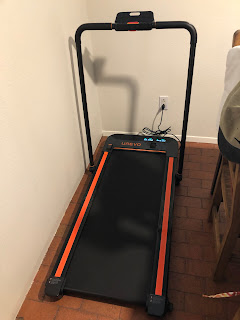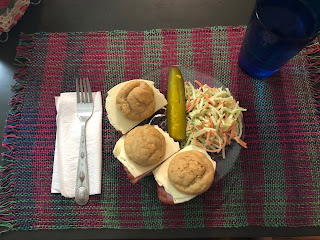 |
| ursus@zdeneksasek.com | Deposit Photos |
Perhaps capitalizing on this trend, BBC Science Focus magazine has an article in its latest issue called, "Key weight-loss mystery solved: New research suggests fat cells have a 'memory'". (I would love to give y'all a link to this article, but it looks like you have to subscribe to see the articles in the latest issue. I have access through Apple News+, which I have found to be a decent news aggregator.)
The article quotes Dr. Ferdinand von Meyenn, assistant professor at ETH Zurich's Department of Health Sciences and Technology, on a recent study conducted by him and his team. They looked at a group of people, some of whom were "living with obesity" (their phrase) and some who weren't, who had lost 25 percent of their body mass index, and compared the differences in DNA sequences in their fat tissue before and after the weight loss. What they discovered -- brace yourselves -- is this: "The body really fights against [weight loss] and wantes to return to its original weight. The adipose tissue is programmed to want to regain that weight."
As a reformed yo-yo dieter, I am here to say: No shit.
He goes on to say that people who lose weight and can't keep it off aren't weak: "There really is an underlying molecular mechanism driving gaining the weight back."
As the same reformed yo-yo dieter: Also no shit.
We have discussed this several times here on hearth/myth. To save you from trawling through years of posts, I will give you the link once again to Wikipedia's article about the Minnesota Starvation Experiment, which was conducted toward the end of World War II. The idea was to find the best diet for people who endured starvation during the war to make them healthy again. But first, the researchers had to create starving people. So they recruited a bunch of guys and put them on a starvation diet. Long-term dieters would recognize the result: many of the experiment subjects quit, many others cheated, and a significant number developed mental illnesses ranging from depression to hysteria: "Participants exhibited a preoccupation with food, both during the starvation period and the rehabilitation phase. Sexual interest was drastically reduced, and the volunteers showed signs of social withdrawal and isolation."
The point being that yeah, fat cells want to be fat again. Duh.
You would think that could be circumvented by getting rid of the excess fat cells. That procedure is called liposuction, and it was all the rage in, oh, the '80s or '90s. It sounded great 'til people started getting infections from having it done in sketchy clinics. Nowadays, it's recognized as plastic surgery and not a weight loss option, and patients are advised that if they don't watch their diet, the weight can come back -- because as it happens, it's not just the fat cells themselves that remember how big and robust they used to be. Our bodies have developed a system over centuries to survive famine -- it's called adaptive thermogenesis -- and they interpret diets as just another famine. Which is why all those guys in the starvation experiment went kinda crazy. Also, vacuuming out some fat cells doesn't do away with your body's ability to make more fat cells to replace them.
Dr. von Meyenn says we should be focusing on obesity prevention instead of trying to cure it after it has already happened. That's not much help for those of us for whom prevention is too late.
Here is the one thing I know for sure to be true, after decades of dieting: Diets don't work. And chasing that hourglass figure will probably just leave you disappointed, depressed, and thinking about food all the time. And that's no way to live.
***
These moments of anti-dieting blogginess have been brought to you, as a public service, by Lynne Cantwell. Stay safe!




